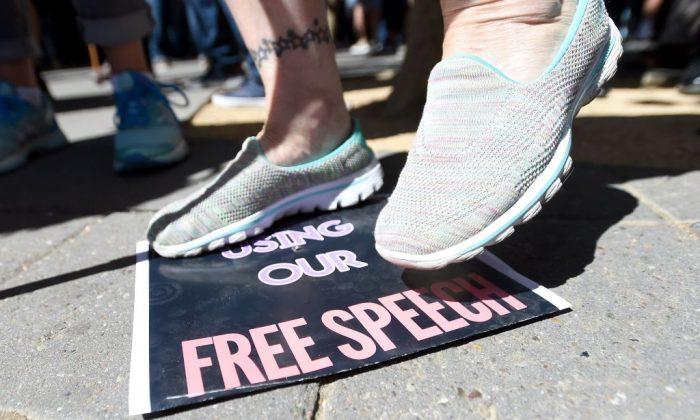The largest ever survey focusing on freedom of speech on U.S. college campuses found that most students, especially those who identify as the political minority at their institutions, feel they can’t express their opinions on controversial topics out of fear of perceived intolerance.
Sixty percent of students can recall at least one time during their college experience when they did not share their perspective because they feared how their peers, professors, or school officials would respond, according to a survey and report published Tuesday by the Foundation for Individual Rights in Education, a First Amendment rights advocacy group, and news website RealClearEducation. Conducted by analytics company College Pulse, the survey covers some 20,000 college students at 55 U.S. institutions.





